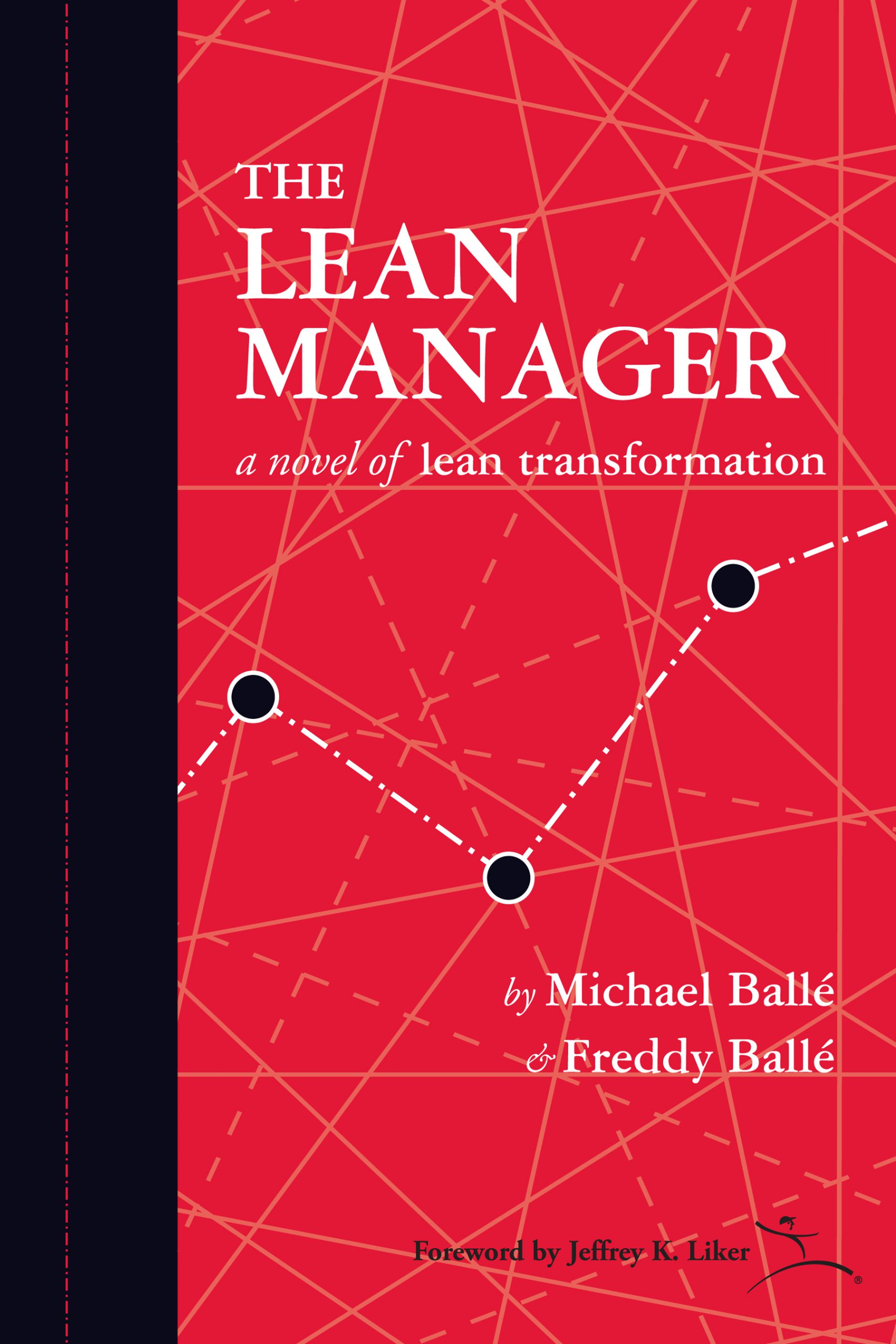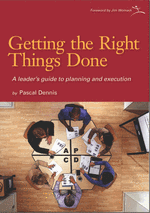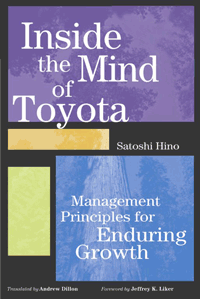£26.00
A novel of Lean Transformation
Description
THE LEAN MANAGER
ABOUT THIS ITEM
Shingo Research and Professional Publication Award recipient
In this groundbreaking sequel to The Gold Mine, authors Michael and Freddy Ballé present a compelling story that teaches readers the most important Lean lesson of all: how to transform themselves and their workers through the discipline of learning the Lean system.
The Lean Manager: A Novel of Lean Transformation reveals how individuals can go beyond the short-term gains from tools, and realize a deeper, sustainable path of improvement. Full of human moments that capture the excitement and drama of Lean implementation, as well as clear explanations of how tools and systems go hand-in-hand, this book will teach and inspire every person working to make Lean a reality in their organization today.
This book will help you learn both the how of doing Lean, as well as the why behind the tools, enabling you to become Lean.
Lean is the most important business model for competitive success today. Yet companies still struggle to sustain enduring and deep-rooted business success from their Lean implementation efforts.
The most important problem for these companies is becoming Lean: how can they advance beyond realizing isolated gains from deploying Lean tools, to fundamentally changing how they operate, think, and learn? In other words, how can companies learn to go beyond Lean turnaround to achieve Lean transformation?
The Lean Manager: A Novel of Lean Transformation, by Lean experts Michael and Freddy Ballé, addresses this critical problem. As we move from what Jim Womack, author, Lean management authority, and LEI founder, calls “the era of Lean tools to the era of Lean management,” The Lean Manager gives companies a definitive guide for sustaining their ability to learn and improve operations and financial performance, while continually developing people.
“The only way to become and stay Lean is to produce Lean managers,” says Womack. “Every isolated effort will recede—or fail—unless companies learn to use the Lean process as a way of developing individual problem-solvers with the ownership, initiative, and know-how to solve problems, learn, and ultimately coach new individuals in this discipline. That’s why this book matters so much.”
The Lean Manager, the sequel to the Ballé’s international bestselling business novel The Gold Mine, tells the compelling story of plant manager Andrew Ward as he goes through the challenging but rewarding journey to becoming a Lean manager. Under the guidance of Phil Jenkinson (whose own Lean journey was at the core of The Gold Mine), Ward learns to use a deep understanding of Lean tools, as well as a technical know-how of his plant’s operations, to foster a Lean attitude that sustains continuous improvement.
Where The Gold Mine shows you how to introduce a complete Lean system, The Lean Manager demonstrates how to sustain it. Ward moves beyond fluency with tools to changing his behavior as a manager and leader. He shifts from giving orders and answers to asking the right questions so people identify and address problems. He learns how to use tools to unleash the creativity and motivation of people, so they learn how to solve problems as well as coach and teach others to solve problems. Ward learns how to create Lean managers.
“I am excited and have hopes that this book will enlighten readers about what it really means to live a business transformation that puts customers first and does this through developing people,” said Jeffrey Liker, author of The Toyota Way and professor of Industrial and Operations Engineering at the University of Michigan. “People who do the work have to improve the work. There are tools, but they are not tools for ‘improving the process.’ They are tools for making problems visible and for helping people think about how to solve those problems.”
ABOUT THE AUTHOR
Michael Ballé, Ph.D., is a business researcher and consultant and has studied Lean transformation for the past 15 years. He is Associate Researcher at Télécom ParisTech and the co-founder of the French Lean Institute (www.institut-lean-france.fr) and the Projet Lean Enterprise (www.lean.enst.fr). With his father, Freddy, he coaches CEOs and senior executives in using Lean to radically improve their businesses’ performances and establish Lean cultures.
Freddy Ballé started visiting Toyota plants in Japan in the mid-1970s while head of product planning and later manufacturing engineering at Renault, where he worked for 30 years. Upon leaving Renault, he pioneered the full Lean system implementation at Valeo as Technical Vice President, then at Sommer-Allibert as CEO, and later at Faurecia as Technical Vice President. With his son, Michael, he has founded ESG Consultants (www.esgconsultants.com) to advise CEOs and senior executives on making Lean transformations as described in The Lean Manager.
WHAT THE EXPERTS ARE SAYING ABOUT THIS BOOK
“Lean is the way that companies win in today’s hyper-competitive world economy. Leading a Lean enterprise, though, takes a whole new management approach: One that focuses on improving both process and performance. One that delivers results by truly developing people. In this sequel to the international best-selling novel The Gold Mine, Michael and Freddy reveal how Lean leaders are made. As you follow plant manager Andrew Ward on his challenging yet rewarding Lean journey, you will learn how to transform yourself, transform your staff, and transform your company into a Lean business that will outpace the competition.”
“The Lean Manager could not have come at a better time. As the modern era of management gives way to the Lean enterprise, we finally have an engaging and, more importantly, comprehensive guide to the principles and practices needed for this new way of work. This essential resource is the first book to spell out the simple yet challenging ways of Lean management. By following the thoughts and actions of Andrew Ward as he gradually becomes a Lean manager under the demanding guidance of sensei Phil Jenkinson, the reader will experience the many hard-won ‘ahas’ that come only with practice. Michael and Freddy Ballé have taken the ‘doing’ and packaged it for us in a business novel, offering a trusted companion that anticipates, understands, and shares the painful fits and starts that befall every serious Lean transformation. The Lean Manager will teach, reassure, inspire, and, ultimately, produce a new generation of Lean managers.”
– James P. Womack, Chairman, Lean Enterprise Institute
“The Lean Manager is full of invaluable nuggets and surprising insights into the management of a Lean transformation. In the end, successful Lean transformation is all about helping colleagues focus on thinking the right way and doing the right things to achieve lasting business results together. No one knows this better than Freddy Ballé, the true father of Lean in France, and his son Michael, a seasoned Lean consultant. The two experienced disciples bring to life the lessons they have learned about making the Toyota Way a hard-earned reality.”
– Daniel T. Jones, Chairman, Lean Enterprise Academy
“I believe that this book is easy to relate to for managers and executives who are beginning to learn about the Lean concepts and tools, as well as a good reminder of the core principles and purposes for more-seasoned individuals. The concepts presented are right in line with the way I was taught and with the way that I learned from all my former Toyota senseis.”
“One weakness that I see with organizations that are trying to do ‘Lean’ in their plants is that they try to change everything at the same time; a scattershot approach (spot kaizen). What we learned by working with Toyota as a supplier was the model line concept, where you focus on one end-to-end product for a customer, making it as perfect as possible, experimenting, testing hypotheses, etc. Taking a systems perspective including the socio-technical aspects, not trying to suboptimize the bits. The purpose is to develop the kaizen consciousness, not chase tools. I think this book followed this idea, which can never be emphasized enough!”
“The book incorporates the different aspects of Lean learning that we have had over the past 20 years and puts it into the context of a good story… I think the book does a good job of discussing common challenges in the corporate world, such as IT/ERP systems, automation, and outsourcing, and how everything is interlinked. Also, I liked how the book focused on developing knowledge and experience in people, everyone, and not just a core set of six sigma or Lean-expert types that have no real experience.”
– Matt Zayko, Associate, Lean Transformations Group
“This book fills a huge void in the area of Lean leadership and management that is so critical to Lean. Lean is not just about creating flow or preparing an A3 or holding a kaizen event; it’s about the management team getting personally involved, going to the gemba, asking the right questions, and more. The light bulb went on for me a couple of years ago on this topic and I am thrilled that there is now a resource that highlights why it is so important and why it is so hard.”
“The area of Lean leadership and Lean management is in dire need of attention and support. Too many executives continue to be reluctant to go to the gemba, to ask questions, to lead by example. They live for PowerPoint presentations in a conference room on the executive floor where managers try to explain what is going on. And the managers are so busy running around putting out fires by moving people around, reviewing computer printouts of metrics, and covering up problems, they miss the entire value of asking the people doing the work how to identify problems and create solutions. There has to be some way to break this vicious cycle. Until we do, we are doomed to a future of failure and frustration. This book finally offers a new approach, which I highly recommend.”
– Cynthia Karen Swank, Senior Vice President, The Phoenix Companies
“As we are progressing on the ‘Lean journey,’ companies are maturing from process-improvement toolkits to Lean value-stream management, to employee engagement in problem solving, to aligned culture focused by self-aware leadership on the right business problems. The companies I teach are begging for guidance on leadership. They have had enough discussion of tools. They understand that path is a dead end. It is the right time for this discussion, but how do you have the discussion?”
“A business novel that illustrates the struggles of real people to change and learn and adapt to an unforgiving business environment is priceless. Once again I am excited and have hopes that this book will enlighten readers about what it really means to live a business transformation that puts customers first and does this through developing people. People who do the work have to improve the work. There are tools, but they are not tools for ‘improving the process.’ They are tools for making problems visible and for helping people think about how to solve those problems. Whether it is a kanban or standardized work or 5S, these are tools to set a standard and make the deviation from the standard visible to the work group. Then the work group must develop problem-solving skills to identify the root cause and solve the real problem. Any solution is an experiment that is ‘right half the time.’ If the tools do not change the way people who do the work think about their own processes, the tools are a failure. If leaders do not understand how to use the tools to unleash the creativity and motivation of people, they are not leaders—they are just administering a bureaucratic process.”
– Jeffrey K. Liker, author of The Toyota Way, and Professor of Industrial and Operations Engineering at the University of Michigan
“The book is a very clever construction in which I really feel what the emerging Lean manager is going through. This is a dangerous book because the experience is so engaging that some people will see reading this book as a substitute for learning through struggle. It reminded me again why I am a Lean person and why all the struggles and difficulties are worth it.”
– Peter Willats, Senior Advisor, McKinsey & Co.
This book covers topics on:
Additional information
| Weight | 0.88 kg |
|---|---|
| Publisher | Lean Enterprise Institute |




